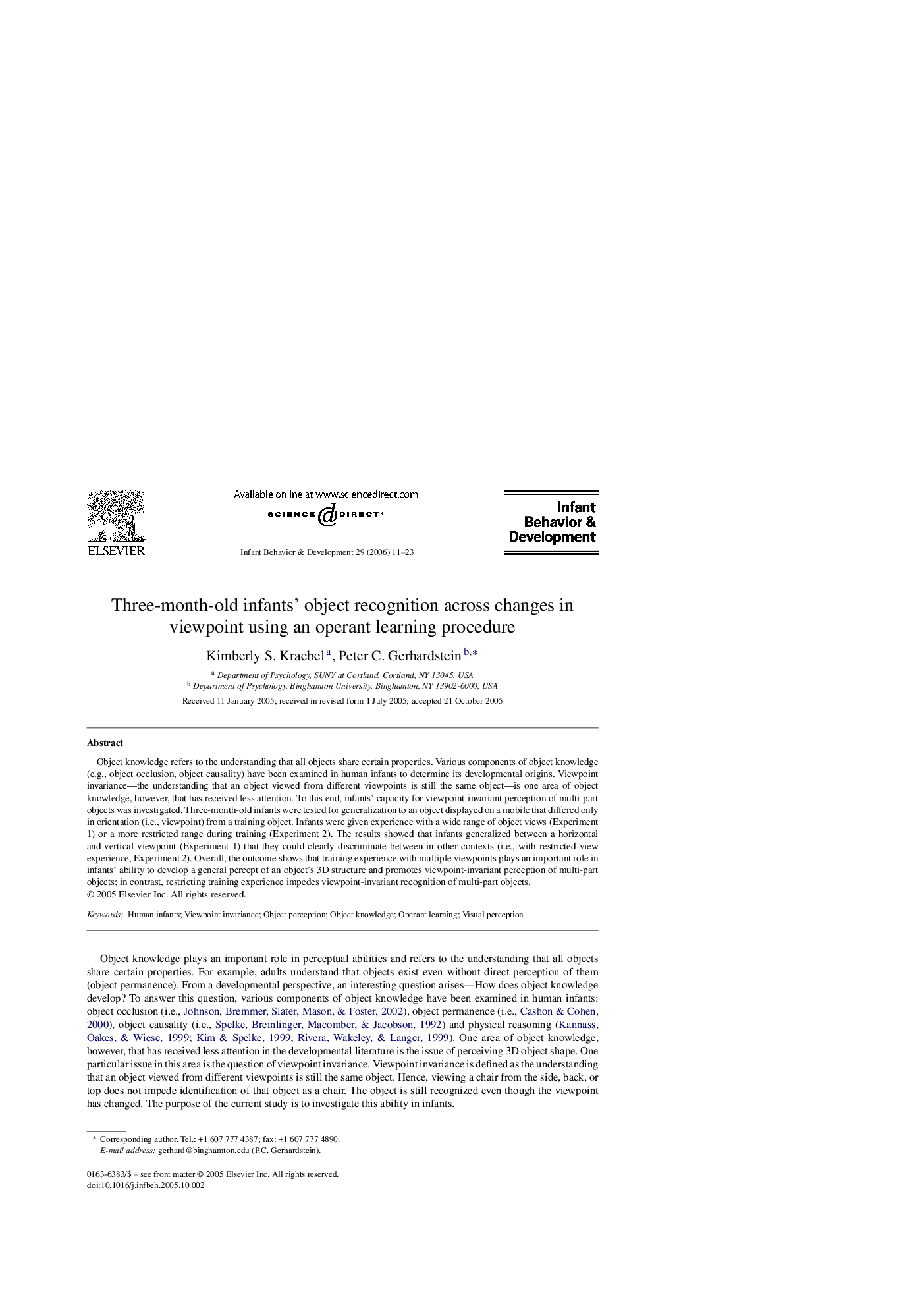| Article ID | Journal | Published Year | Pages | File Type |
|---|---|---|---|---|
| 917629 | Infant Behavior and Development | 2006 | 13 Pages |
Object knowledge refers to the understanding that all objects share certain properties. Various components of object knowledge (e.g., object occlusion, object causality) have been examined in human infants to determine its developmental origins. Viewpoint invariance—the understanding that an object viewed from different viewpoints is still the same object—is one area of object knowledge, however, that has received less attention. To this end, infants’ capacity for viewpoint-invariant perception of multi-part objects was investigated. Three-month-old infants were tested for generalization to an object displayed on a mobile that differed only in orientation (i.e., viewpoint) from a training object. Infants were given experience with a wide range of object views (Experiment 1) or a more restricted range during training (Experiment 2). The results showed that infants generalized between a horizontal and vertical viewpoint (Experiment 1) that they could clearly discriminate between in other contexts (i.e., with restricted view experience, Experiment 2). Overall, the outcome shows that training experience with multiple viewpoints plays an important role in infants’ ability to develop a general percept of an object's 3D structure and promotes viewpoint-invariant perception of multi-part objects; in contrast, restricting training experience impedes viewpoint-invariant recognition of multi-part objects.
